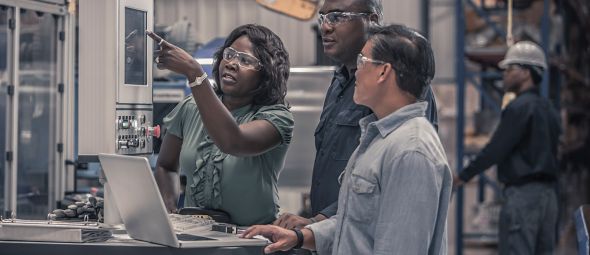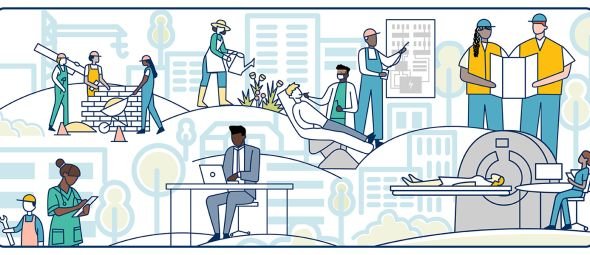Overview
People’s access to opportunity and advancement in the labor market is shaped by macroeconomic forces, technological change, policy choices, and labor market dynamics. Over the past 40 years, these influences have culminated in greater income inequality and less upward economic mobility for US workers. They have also contributed to a growing share of low-wage jobs in the US labor market. WorkRise generates evidence on and elevates our understanding of how macroeconomic, technological change, policy, and labor market dynamics influence economic security and mobility.
Working Knowledge

Mass Deportations Would Worsen Our Housing Crisis
In Depth
WorkRise Manufacturing and Supply Chains Projects
Research
Workforce Strategies for New Industrial Policies: Governors’ Emerging Solutions
Grantee Research

Expanding Worker Opportunities Through Evidence: WorkRise Impact Report 2023
Aligning Workforce and Economic Development to Benefit Workers
WorkRise Research
Quantifying the Costs of Rising Unemployment
WorkRise Research

Leveraging Federal Funds to Create Quality Jobs
WorkRise Research

How Past Criminal Convictions Bar Floridians from Occupational Licensing Opportunities
Grantee Research
Implications of Providing Child Care Assistance to Parents In Education and Training
Grantee Research
Expanding Child Care Subsidies to Parents in Education and Training
Grantee Research

The Challenge of Slow Wage Growth
WorkRise Research
Racial Inequality in the Labor Market and Employment Opportunities
WorkRise Research
Upcoming Events
Jul
22
